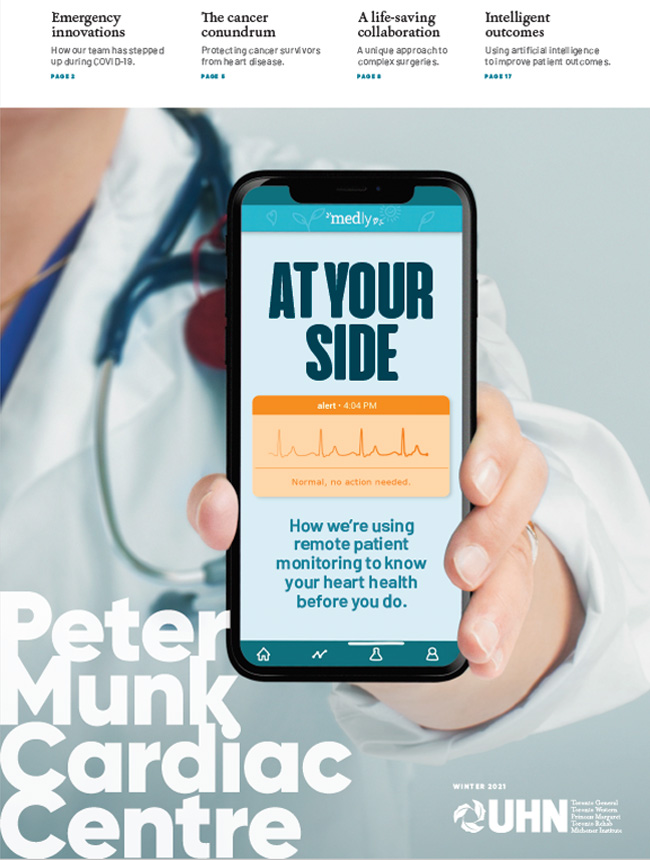In February 2019, Arnold Schwisberg was halfway down a ski run at Whistler Blackcomb in B.C. when his implantable cardioverter defibrillator went off three times.
"It felt like being kicked in the chest by a donkey," says the Richmond Hill, Ont., lawyer, who was born with hypertrophic cardiomyopathy, a condition that causes heart tissue to thicken.
Fortunately, the skilled skier managed to get himself down the hill. After three weeks in a Vancouver hospital, he returned home and saw his longtime care team at Peter Munk Cardiac Centre (PMCC).
They had bad news: he was in stage four heart failure and needed a new heart. Unfortunately, there wasn't one available. While devastated, Arnold never gave up hope.
"I refused to be put down by this," he says.
Arnold's situation is all too common. Thousands of Canadians need hearts, but there aren't enough to go around. According to Dr. Mitesh Badiwala, a cardiac surgeon in the PMCC at UHN's Sprott Department of Surgery, and Surgical Director of the Heart Transplant Program at UHN's Ajmera Transplant Centre, between 30 per cent and 40 per cent of hearts that become available for transplant can't be used due to damage.
"Hearts are scarce," he notes. "We can't offer them to everyone who would benefit."
And we need more hearts than ever: heart failure rates are growing in Canada, in part because people are living longer with cardiovascular disease.
While surgeons and researchers at the PMCC want to increase the supply of hearts, they're also helping keep patients alive longer with implantable cardiac devices. The Centre is a leader in implanting left ventricular assist devices (LVADs), which are powerful mechanical tools that help the heart pump. Sometimes called mechanical hearts, these devices can be used while waiting for a transplant or work in place of a new heart in some cases.

